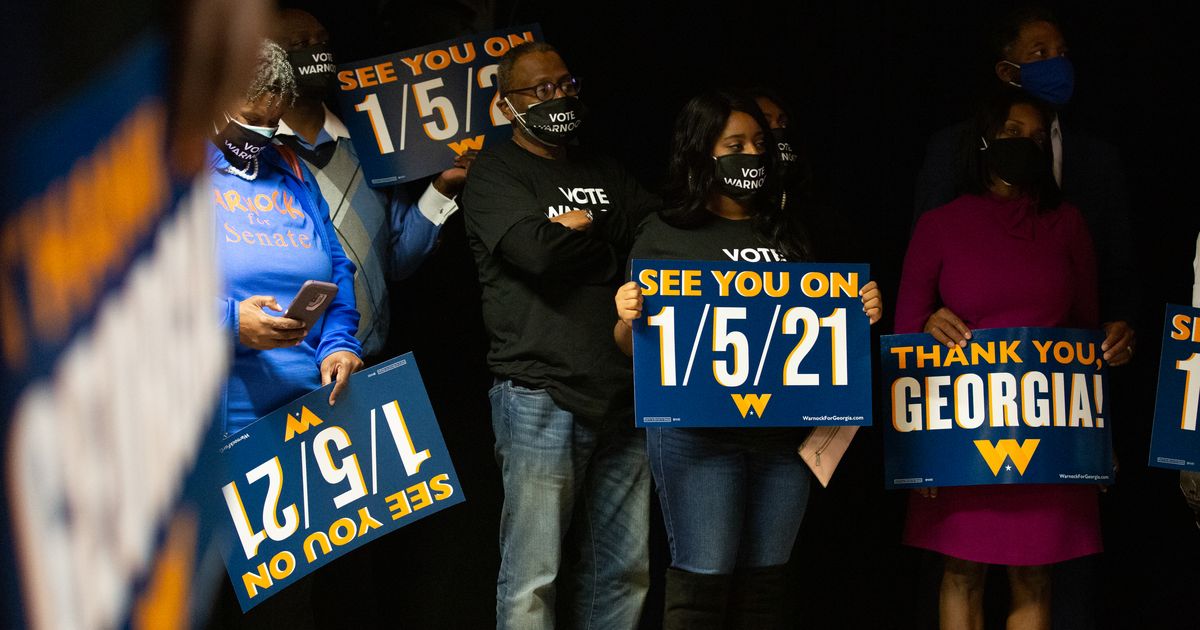
The U.S. election season isn’t over yet. With two runoff elections in Georgia deciding which party has control of the Senate, all eyes are now on the state.
Unfortunately, that includes nefarious actors and misinformation spreaders.
A new study by the nonprofit activist organization Avaaz found that Facebook is currently failing at curbing the spread of falsehoods attempting to influence the outcome of these very important elections.
Avaaz looked at 204 different Facebook posts, peddling 12 different types of election misinformation, for the report. In total, these posts had racked up a combined 643,406 interactions by November 20. Basically, these posts containing misinformation are receiving lots of comments, likes, and shares.
Even more concerning, 60 percent of these posts did not have a fact-check label applied. In many cases, content that was previously fact-checked in one user’s post was somehow escaping the label in a duplicate post shared by another user.
Two weeks ago in a call with members of the press, Facebook boasted about how it has placed warning labels on 180 million pieces of content since March. However, 122 out of the 204 pieces of misinformation flagged by Avaaz somehow snuck through the cracks. Without a fact-check label on these posts, they weren’t being demoted by Facebook’s algorithm, allowing them to freely spread across the platform.
Among the falsehoods and conspiracy theories that Avaaz found permeating the platform: claims that dead people voted in the 2020 presidential election in Georgia. This particular claim of election fraud has been debunked by organizations like LeadStories, which works with Facebook as an official fact-checker.
“Georgia voters are just weeks away from deciding the direction of the US Senate — and the direction of the country — and their News Feeds are being overrun with misinformation that could further erode trust in the election process and suppress turnout,” said Avaaz Campaign Director Fadi Quran in a statement. “Every day Facebook fails to correct the record and demote election disinformers in its algorithm, it rips the fate of this pivotal election out of voters’ hands and throws it to the wolves of disinformation and mass confusion that are continuing to put democracy at risk.”
In addition, misleading claims have specifically targeted individuals in the race, such as Democratic candidate Raphael Warnock. Some especially concerning posts also engaged in voter suppression and intimidation, in order to discourage Black voters from going to the polls.
Over the past few weeks, Senate Democrats have urged social media companies to not let up in their battle against fake news and conspiracy theories just because the presidential election is over.
Earlier this week, Georgia’s Secretary of State — a Republican — criticized President Trump and his political allies for spreading misinformation about the election results in the state. In what was perhaps the biggest upset in the 2020 presidential election, President-elect Joe Biden defeated Donald Trump in Georgia, a state that last voted for a Democratic presidential candidate in 1992.
In its report, Avaaz urges Facebook to “correct the record” for the users who have been served these misleading posts and fix the AI that’s missing the duplicate posts. The organization also called on Facebook to institute a system that “downranks” Facebook Pages and Groups that repeatedly spread misinformation.
Georgia’s two runoff elections will be held on January 5, 2021.
